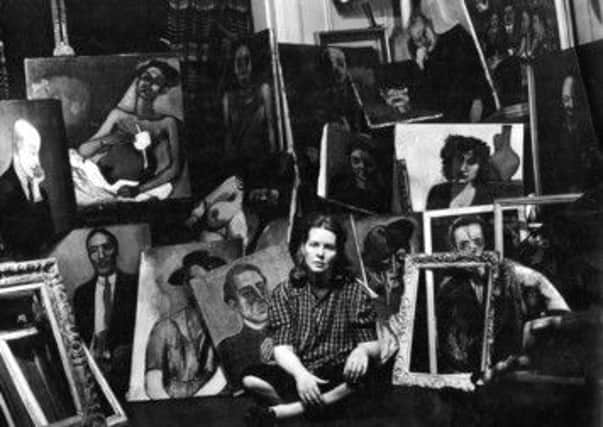Art of the arts documentary goes under microscope


Exhibit A? Alice Neel, a fascinating, barely released 2007 documentary about the late American portrait painter, directed by her grandson, Andrew.
Neel toiled away in obscurity for much of her career, marginalised by the post-war dominance of Abstract Expressionism and Pop Art. Eventually removing herself from the art scene to remain better connected to the regular people whom she preferred to paint, her work was characterised by her striking humanism and its psychological insight. But her obsessive need to paint, and the poverty-stricken boho lifestyle that accompanied this, often blinded her to the needs of her family, and her children in particular.
Advertisement
Hide AdTheir resentments are revealed in the film, in often tense confrontations, particularly between Andrew and his father (Alice’s son). But while their experiences quickly put paid to any romantic notions of living an artistic lifestyle, the film itself is not an attack on Neel, who died in 1984. Everyone connected to her here is grappling with his or her own conflicted feelings about Alice (whose career had something of a fairytale ending). Andrew’s raw, unpolished filmmaking style, particularly the way he clumsily probes his family for information, reflects this messiness of life – something that, despite his grandmother’s singular pursuit of her calling, likely found its way into her work and made it great. As one expert says of her portraits: “You’re seeing time happen, rather than time stopped.”
The concept of stopping time, or rather freezing a moment, is very much at the heart of Everybody Street and Gregory Crewdson: Brief Encounters, two new photography documentaries that come at the art form from opposing angles. In Everybody Street, filmmaker and photographer Cheryl Dunn tracks some of the leading figures of the New York street photography scene to show how their work – and the documentary style of street photography in general (which she traces back to the likes of Henri Cartier-Bresson and Robert Frank) – has captured the changing face of the city. Dunn’s an insider, so she gets some great, spiky interviews with the likes of Bruce Gilden, Bruce Davidson, Jill Freedman and Mary Ellen Mark; her technique of unobtrusively filming them at street level as they work also helps put us in the moment. But as the film progresses, Dunn also interrogates whether, in the age of the selfie, this moment, and the whole concept of street photography as an art form, might be about to pass.
If its influence is diminishing, that’s unlikely to worry Gregory Crewdson. The American photographer has always railed against the notion of documentary photography, preferring to stage his dark, gothic-inspired stills of suburban American life with the precision of a painter and the production values of a Hollywood movie. Indeed he tends to require a whole film crew, including a cinematographer, just to capture a single image – the budget for which can be the equivalent of a small independent movie (luckily, they sell for hundreds of thousands of dollars). Gregory Crewdson: Brief Encounters – which follows Crewdson as he completes the last of a series of these epic productions – captures some of the behind-the-scenes majesty of this way of working and, while Crewdson’s family background – he’s the son of a psychotherapist – means he’s a little too good at controlling what relevant psychological insights are divulged about his work, director Ben Shapiro complements his subject’s drive for perfection by paring away any fat from the film.
The ecstasy of the captured moment is what matters to Crewdson and that’s what the film serves up.
• GFT and CCA Glasgow until tomorrow, www.bbc.co.uk/artscreen